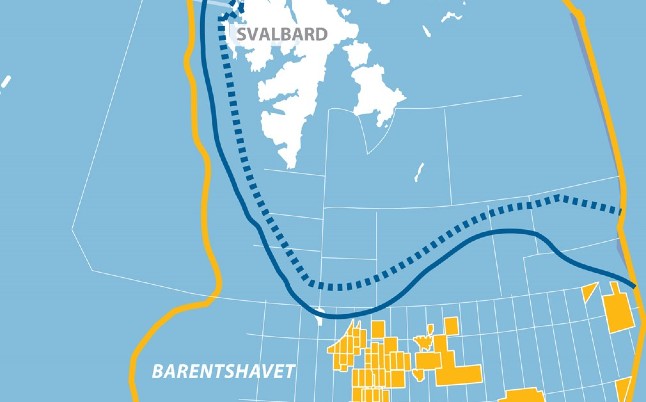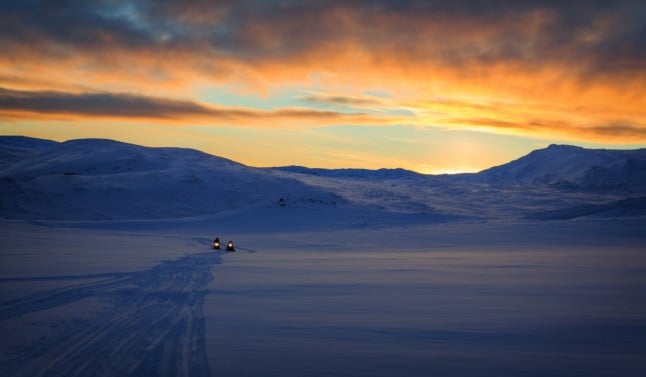- Environmental groups take Norway to Supreme Court over Arctic oil
- Why Norway’s government says ending oil industry 'won’t help' cut global emissions
- Blow to Norwegian environmentalists as lawsuit over Arctic oil defeated
OIL
Norway proposes extending ‘ice edge’ to limit Arctic drilling
Norway's government has proposed extending the 'ice edge' that limits how far into the Arctic oil companies are allowed to explore further south, in a sign that normal political life is starting to resume.
Published: 24 April 2020 13:22 CEST

The new 'ice edge' has been marked further south than that decided in 2015. Photo: Norwegian Government
The government has proposed drawing the line at the point where there is sea ice for an average of 15 percent of the days in April.
“With a limit of 15 percent ice frequency, we will take better care of the environment and reduce the risk of damaging vulnerable nature,” Sveinung Rotevatn, Norway's Minister of Climate and Environment, said in a press release, outlining its new plan for managing its Arctic waters.
The proposal is the first significant political act of the government since the coronavirus crisis hit in mid-March.
After the announcement, oil minister Tina Bru said she hoped that once the management plan had been agreed it would open the way for a new oil exploration licensing round.
READ ALSO:
The government had previously set the limit to areas with ice cover on 30 percent of the days in April.
But in an article in the VG newspaper, Lars Halbrekken, deputy leader of the Socialist Left party said the decision “roughly and brutally overrides” the scientific advice from the Norwegian Institute of Marine Research and the Norwegian Polar Institute.
“In reality, the environment and nature are the losers,” he wrote. “It sounds essentially good that the limit for what is the ice edge has been changed from 30 percent ice frequency to 15 percent ice frequency.”
But he said the increasing global temperatures meant that the sea area open to exploitation was essentially the same.
The problem is that these percentages cannot be compared. If you place the new 15 percent limit on the same map as the old 30 percent limit, you will see they largely follow one another.”
The scientific advice, he complained, had been to set the line at 0.5% ice frequency.
Espen Barth Eide, environmental spokesman for the Labour Party, would on Friday not comment on the proposal.
The proposal came as Norway's supreme court on Monday said that it would hear a lawsuit brought by Greenpeace and other environmental groups, seeking to annul Arctic oil exploration licences awarded in 2016.
Together with Natur og Ungdom (Nature and Youth), part of Friends of the Earth International, Greenpeace had sued the government calling for licenses granted to 13 oil companies to be annulled because they infringe a constitutional right to a healthy environment.
Oslo district court ruled in January 2018 that the licenses were not illegal, a decision upheld unanimously by an appeals court in January.
Url copied to clipboard!


 Please whitelist us to continue reading.
Please whitelist us to continue reading.
Member comments